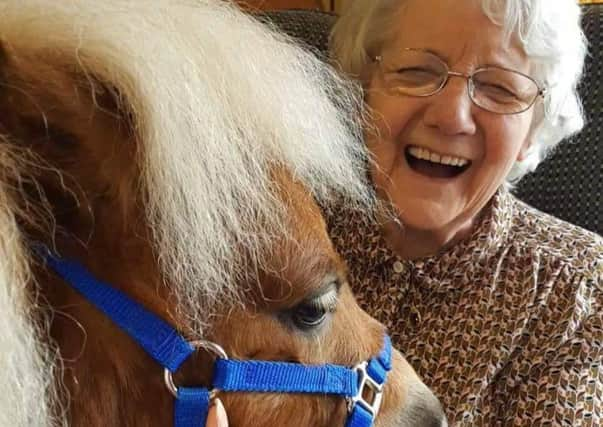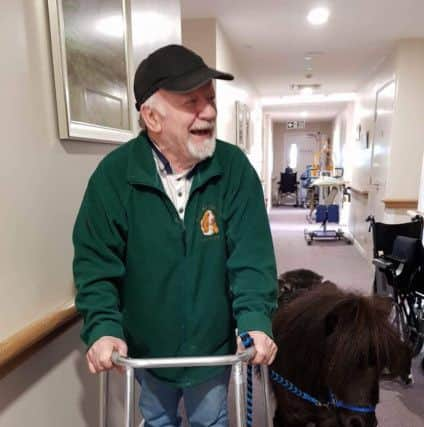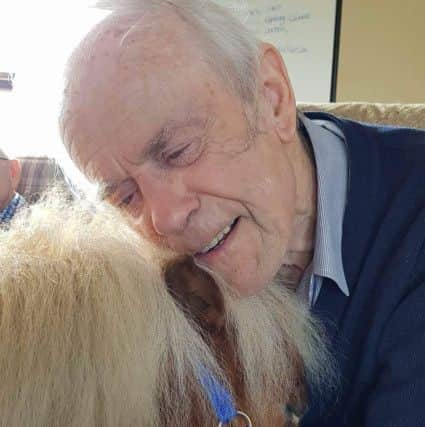Shetland ponies bring comfort and joy to dementia patients


While raising a smile among patients, the ponies have also given some the confidence to leave their rooms, mingle with others and hold a conversation.
Sometimes, the ponies go into lifts in care homes to visit patients in their bedrooms.
Advertisement
Hide AdTherapy Ponies Scotland is run by husband and wife team Elaine and John Sangster, whose stables are based in West Lothian.


Today, they travelled to Aberdeen to show off the therapeutic affect of their ponies at a major dementia conference organised by NHS Grampian to bring together best thinking on treatment and care amid rising rates of the illness.
Mrs Sangster said: “We travel to wherever we are asked to go, where possible.
“The amazing reactions and responses from residents and patients we see can be extraordinary.


“Sometimes people who don’t normally speak or hold a conversation can be talking to us and the ponies much to the amazement of their nurse and carers.”
Mrs Sangster added that one pony, Applejack, recently led a patient out of his bedroom, where he usually spent most of his time.
Advertisement
Hide AdShe said: “The man normally didn’t come out of his room but after meeting Applejack, he couldn’t get down to the lounge quick enough and he was delighted to walk the pony too.
“The ponies do go into lifts to reach bedrooms where people are too unwell or just don’t want to leave.”
Advertisement
Hide AdThe conference, organised by NHS Grampian and taking place at AECC, is aimed at raising awareness of the latest care, support and research on dementia.
The illness affects almost 10,000 people in the NHS Grampian area – a rise of more than 45% compared with 2007.
In Scotland as a whole, there were an estimated 16,712 individuals newly diagnosed with dementia in 2014. By 2020, this number is estimated to increase by 17% to 19,473.
Lyn Irvine, Nurse Consultant for Alzheimer Scotland and NHS Grampian, said: “Therapy Ponies Scotland do some fantastic work and as you can see the animals are really affectionate and fond of a good cuddle.
“The interaction with the ponies often helps stimulate a positive social response from people living with dementia and minimise stress and distress. The animals provide comfort, joy and a sense of excitement.
“The difference the animals make can be quite remarkable – stimulating positive engagement and therapeutic interaction through full conversations about the animals.
Advertisement
Hide Ad“That’s really precious – both for the person living with dementia and for their families and carers.
Dr Jennifer Adams, Consultant in Older Adults Mental Health said the significant increase in dementia sufferers in the North East was a “real concern” with rates expected to rise further given the ageing population.
Advertisement
Hide AdDr Adams added: “That’s why it’s important that we make sure that we’ve got the right support in place for everyone who is affected with a consistent approach.
“The therapy ponies are another tool that will help provide that. As an organisation we already support the use of Therapets within the clinical areas and the feedback from people living with dementia , carers and relatives was fantastic so we hope that the ponies and the specifically trained dementia dogs will be just as big a hit.”